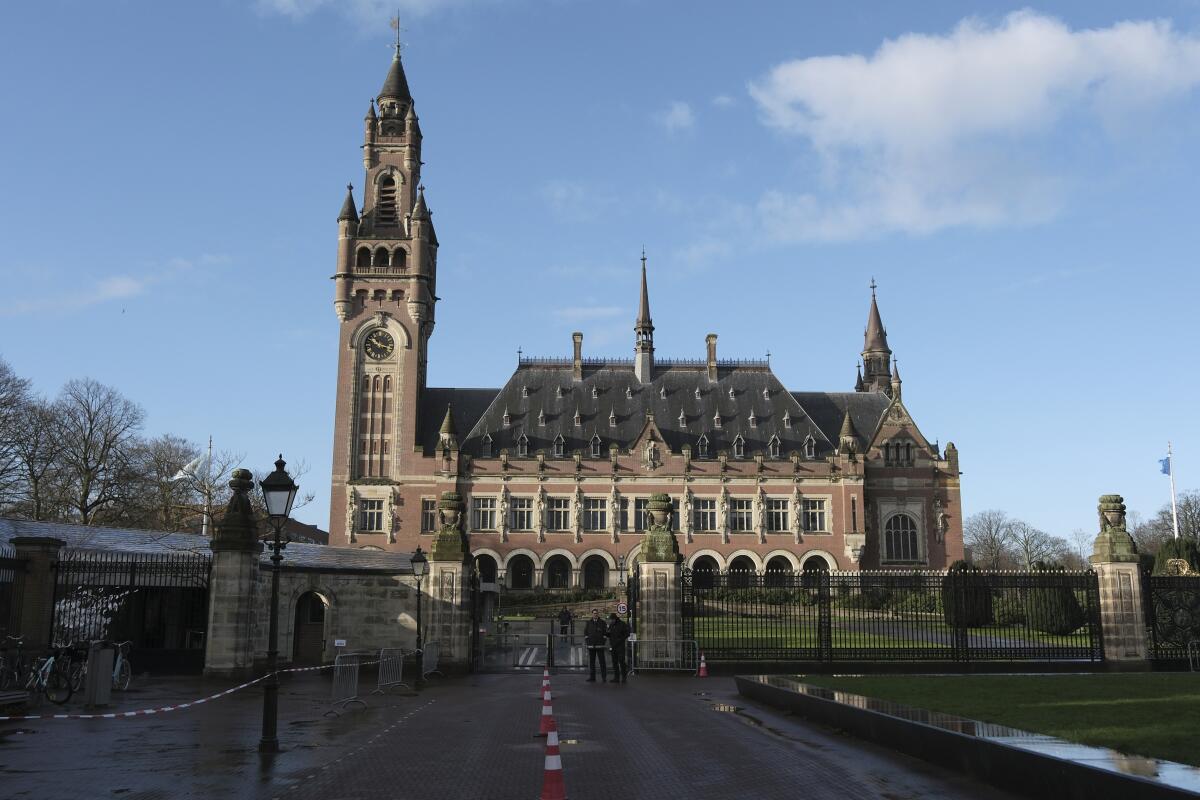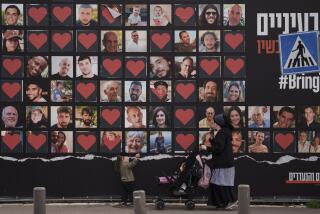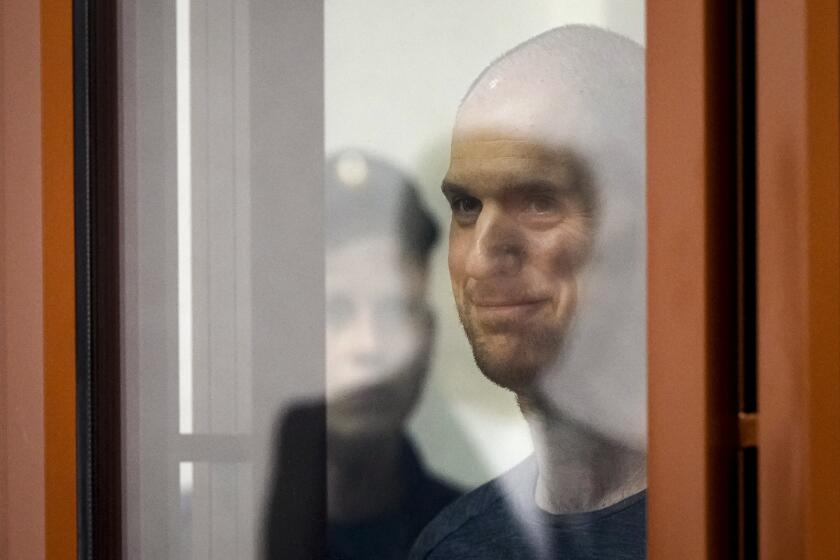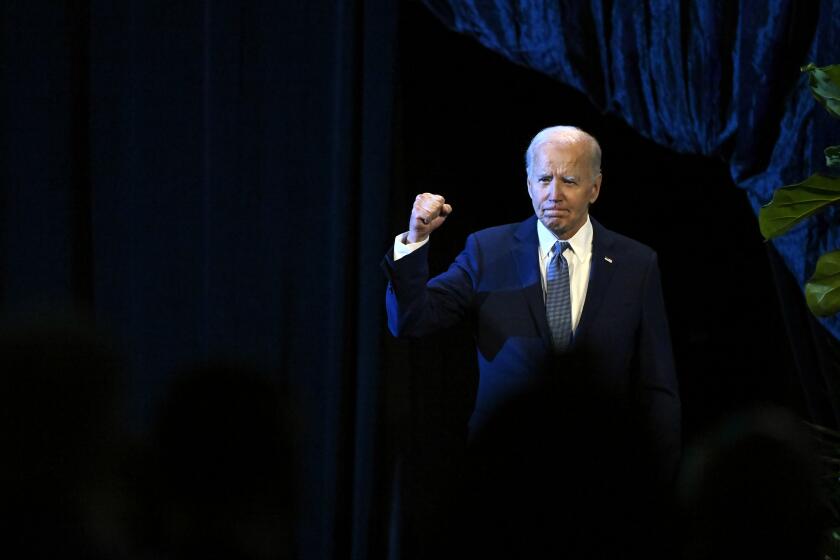Top U.N. court says Israel’s settlement policy in occupied territories violates international law

The top United Nations court said Israel’s settlement policy in the West Bank and east Jerusalem violates international law, as it delivered a nonbinding advisory opinion on the legality of Israel’s 57-year occupation of lands sought for a Palestinian state, a ruling that could have more effect on international opinion than it will on Israeli policies.
International Court of Justice President Nawaf Salam was expected to take about an hour to read out the full opinion of the panel, which is made up of 15 judges from around the world.
In part of the opinion, he said the panel had found that “the transfer by Israel of settlers to the West Bank and Jerusalem as well as Israel’s maintenance of their presence, is contrary to article 49 of the Fourth Geneva Convention.” The court also noted with “grave concern” that Israel’s settlement policy has been expanding.
The court also found that Israel’s use of natural resources was “inconsistent” with its obligations under international law as an occupying power.
Friday’s hearing comes against the backdrop of Israel’s devastating nine-month military assault on Gaza, which was triggered by the Hamas-led attacks in southern Israel. In a separate case, the International Court of Justice is considering a South African claim that Israel’s campaign in Gaza amounts to genocide, a claim that Israel vehemently denies.
A settlement tracking group says Israel has approved the largest seizure of land in the occupied West Bank in over three decades.
Israel captured the West Bank, east Jerusalem and Gaza Strip in the 1967 Mideast war. The Palestinians seek all three areas for an independent state.
Israel considers the West Bank to be disputed territory, whose future should be decided in negotiations, while it has moved population there in settlements to solidify its hold. It has annexed east Jerusalem in a move that is not internationally recognized, while it withdrew from Gaza in 2005 but maintained a blockade of the territory after Hamas took power in 2007.
Religious Zionists, most believing in a divine right to govern, now have outsize influence in Israel. The war in the Gaza Strip is energizing their settlement push.
At hearings in February, then-Palestinian Foreign Minister Riad Malki accused Israel of apartheid and urged the United Nations’ top court to declare that Israel’s occupation of lands sought by the Palestinians is illegal and must end immediately and unconditionally for any hope for a two-state future to survive.
Israel, which normally considers the United Nations and international tribunals as unfair and biased, did not send a legal team to the hearings. But it submitted written comments, saying that the questions put to the court are prejudiced and “fail to recognize Israel’s right and duty to protect its citizens,” address Israeli security concerns or acknowledge Israel-Palestinian agreements to negotiate issues, including “the permanent status of the territory, security arrangements, settlements, and borders.”
The Palestinians presented arguments in February along with 49 nations and three international organizations.
Erwin van Veen, a senior research fellow at the Clingendael think tank in The Hague, said a court ruling that Israel’s policies in the West Bank and east Jerusalem breach international law is unlikely to change Israeli policies but would “isolate Israel further internationally, at least from a legal point of view.”
He said such a ruling would “worsen the case for occupation. It removes any kind of legal, political, philosophical underpinning of the Israeli expansion project.”
It would also strengthen the hand of “those who seek to advocate against it” — such as the grassroots Palestinian-led movement advocating boycotts, divestment and sanctions against Israel. He said it also could increase the number of countries that recognize a Palestinian state.
It is not the first time the ICJ has been asked to give its legal opinion on Israeli policies. Two decades ago, the court ruled that Israel’s West Bank separation barrier was “contrary to international law.” Israel boycotted those proceedings, saying they were politically motivated.
Israel says the barrier is a security measure. Palestinians say the structure amounts to a massive land grab because it frequently dips into the West Bank.
The U.N. General Assembly voted by a wide margin in December 2022 to ask the world court for the advisory opinion. Israel vehemently opposed the request that was promoted by the Palestinians. Fifty countries abstained from voting.
Israel has built well over 100 settlements, according to the antisettlement monitoring group Peace Now. The West Bank settler population has grown by more than 15% in the past five years to more than 500,000 Israelis, according to a pro-settler group.
Israel also has annexed east Jerusalem and considers the entire city to be its capital. An additional 200,000 Israelis live in settlements built in east Jerusalem that Israel considers to be neighborhoods of its capital. Palestinian residents of the city face systematic discrimination, making it difficult for them to build new homes or expand existing ones.
The international community widely considers all settlements to be illegal or obstacles to peace since they are built on lands sought by the Palestinians for their state.
Prime Minister Benjamin Netanyahu’s hard-line government is dominated by settlers and their political supporters. Netanyahu has given his finance minister, Bezalel Smotrich, a former settler leader, unprecedented authority over settlement policy. Smotrich has used this position to cement Israel’s control over the West Bank by pushing forward plans to build more settlement homes and to legalize outposts.
Authorities recently approved the appropriation of nearly 5 square miles of land in the Jordan Valley, a strategic piece of land deep inside the West Bank, according to a copy of the order obtained by the Associated Press. Data from Peace Now, the tracking group, indicate it was the largest single appropriation approved since the 1993 Oslo accords at the start of the peace process.
Corder writes for the Associated Press.
More to Read
Start your day right
Sign up for Essential California for news, features and recommendations from the L.A. Times and beyond in your inbox six days a week.
You may occasionally receive promotional content from the Los Angeles Times.








